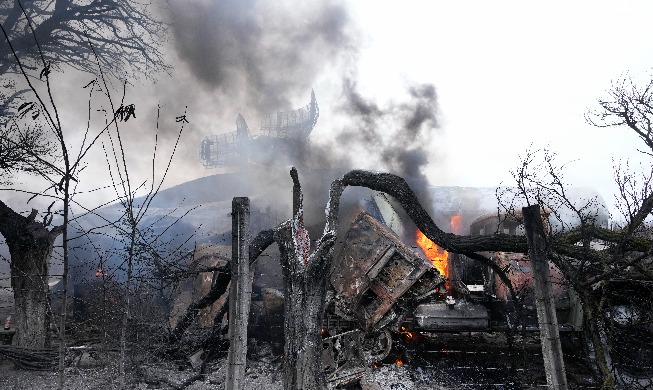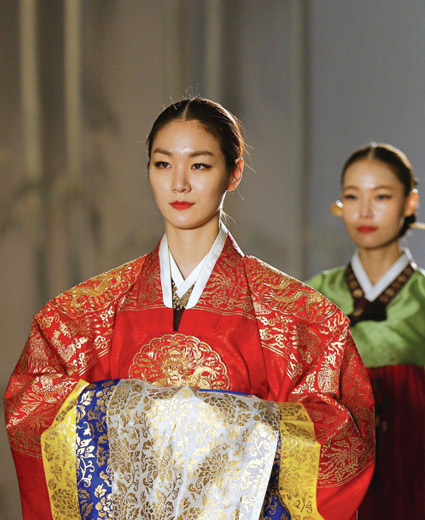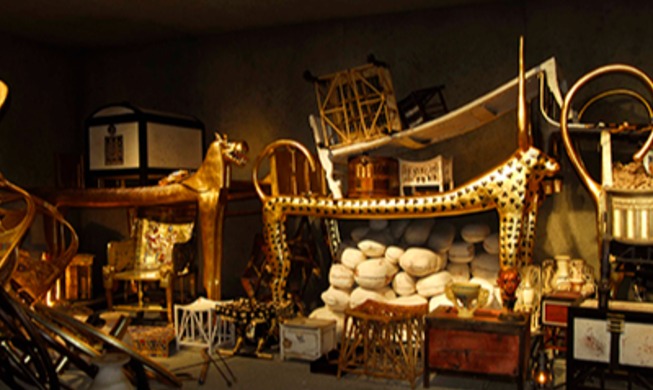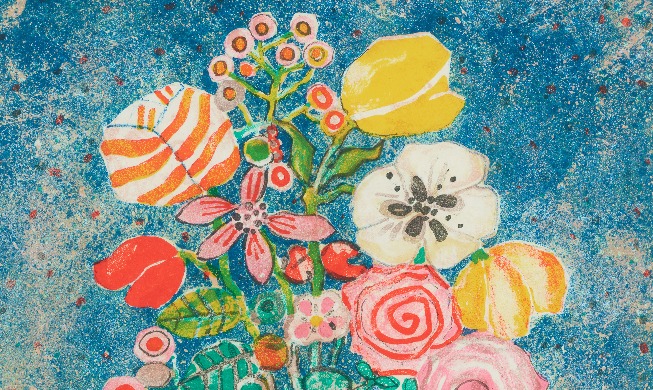-
 Korea.net's 24-hour YouTube channel
Korea.net's 24-hour YouTube channel- NEWS FOCUS
- ABOUT KOREA
- EVENTS
- RESOURCES
- GOVERNMENT
- ABOUT US
By Honorary Reporter Marianna Szucs from Hungary
Photos= Marianna Szucs
To commemorate World Book Day (March 3) this year, I have selected four Korean graphic novels that deal with the themes of food, sexual slavery, political activism and history, and adoption.
"Umma's Table"
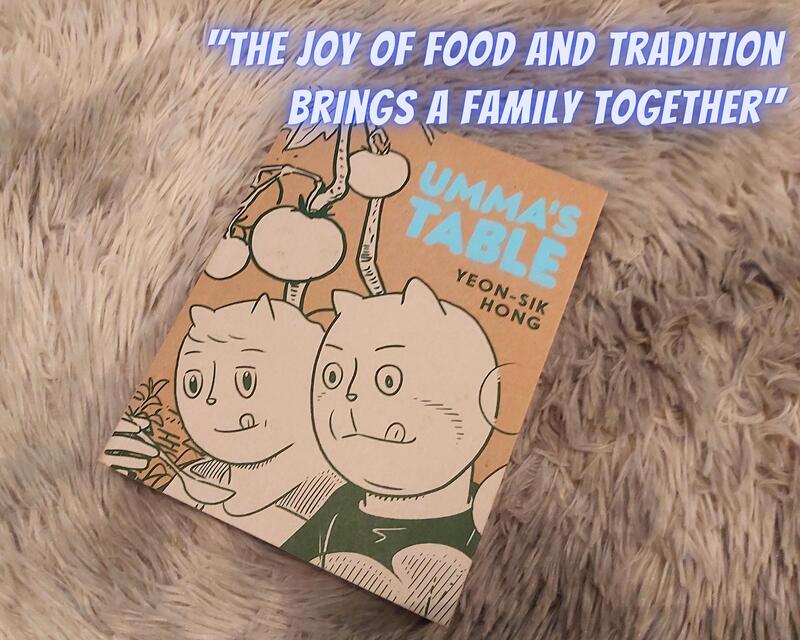
"Umma's Table," written by Hong Yeon-sik and translated by Janet Hong, is the story of a family who moves to the countryside to escape the busy life of Seoul. The protagonist Madang is an artist who starts a new life with his wife and newborn baby in a rural village. His elderly parents remain in a small basement apartment in Seoul as his mother needs regular checkups due to her poor health and his father is an alcoholic. Madang is torn between being a loving husband and a good son to his parents.
The graphics genuinely convey the warm and bubbly atmosphere in a Korean family gathering; the author reminisces about the times he spent with his family over traditional meals. As his mother's health deteriorates, Madang tries to learn how to make her recipes and bring his family's three generations together through eating. Making and sharing kimchi is one of the focal points of the story.
Last year, the Korean Cultural Centre in London organized a live virtual talk with Hong that I attended. The author said Madang's story was based on his own experience and helped Hong cope with the loss of his mother. The characters are displayed as a cute cat family, and Hong said this allowed him to create more universal characters regardless of race, religion, and culture.
"Grass"
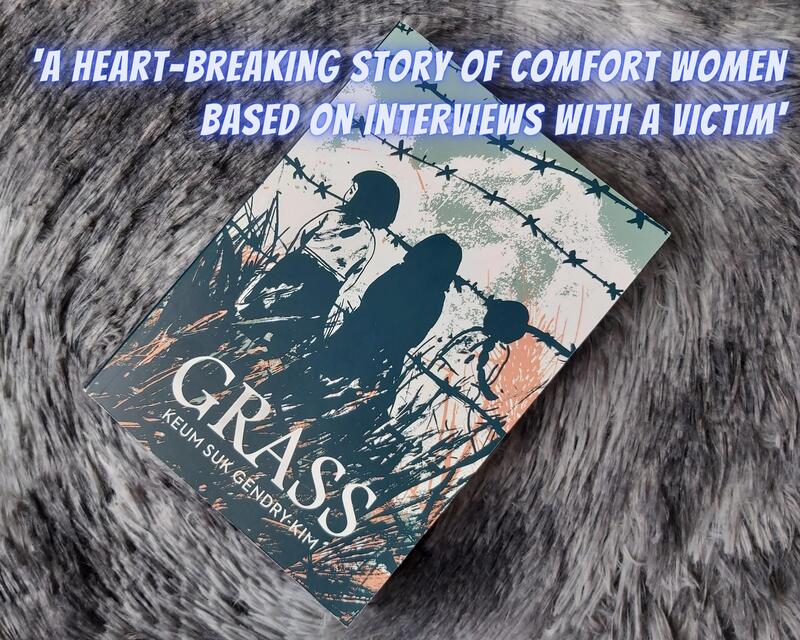
"Grass," written by Keum Suk Gendry-Kim and translated by Janet Hong, is a graphic novel on "comfort women," or Korean women forced into sexual slavery by the Japanese imperial army. This nonfiction work is based on interviews with Lee Ok-sun, a surviving victim, and covers from her early childhood to her abduction to northern China and her life after World War II in China until the present day.
The emotional retelling of Lee's story through a black-and-white presentation makes the book bitterly emotional, touching and simultaneously disturbing. Though the physical atrocities and abuse she suffered are not displayed, the painfully realistic images and storytelling convey her lifelong trauma.
Gendry-Kim became the first Korean to win the prestigious Harvey Award for Best International Book, and her work shone a light on graphic novels for their value in dealing with serious topics.
"Banned Book Club"
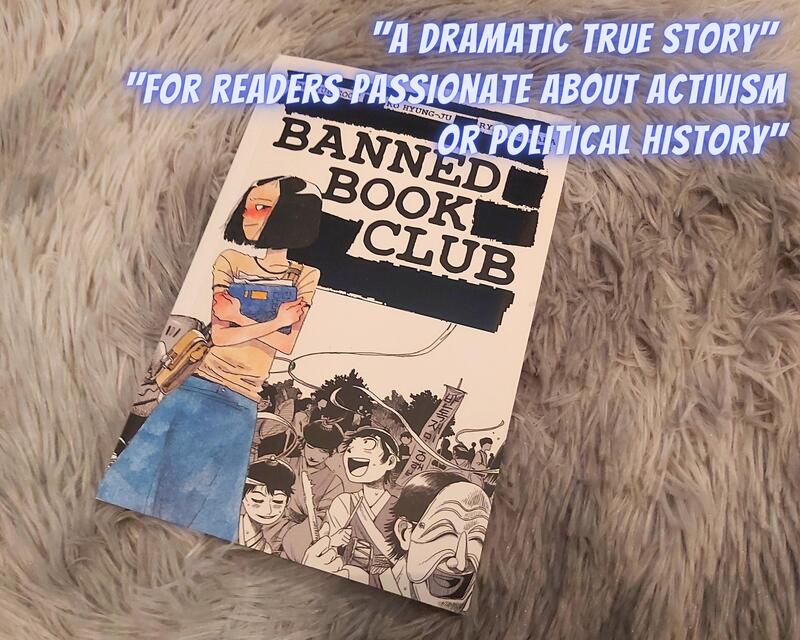
"Banned Book Club," written by Kim Hyun-sook and Ryan Estrada and drawn by Ko Hyung-ju, focuses on the May 18 Gwangju Democratization Movement of 1980. Though set at a fictional university, the story is based on true events and experiences of survivors, whose identities and stories have been changed for their safety and privacy.
The graphic novel starts in 1983, when the protagonist Hyun-sook enters university amid political tension and constant protests, but she naively believes that they will not affect her studies and life. Things changes after she joins a club for reading government-censored books. Hyun-sook is innately a strong woman as she secretly applies to university against the wishes of her strong-headed mother. The intellectual and literary battlefield of the university gives her a final push to release her rebellious side and fight for her and the country's rights.
"Palimpsest"
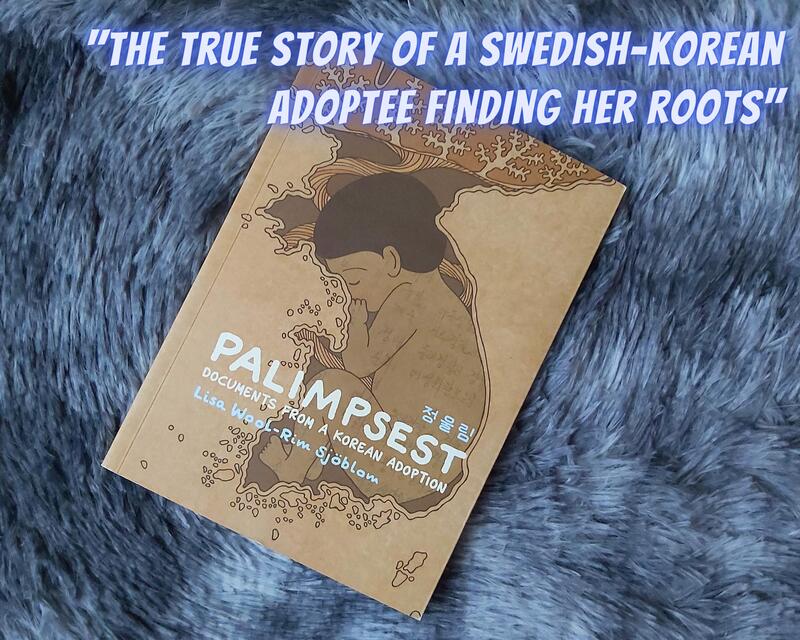
"Palimpsest," written by Lisa Wool-Rim Sjoblom and translated by Hanna Stromberg, Lisa Wool-Rim Sjoblom and Richey Wyver, is a memoir based on a Korean Swedish artist's upbringing in Sweden as a Korean adoptee. It provides an honest, emotional and dramatic insight into an adoptee's life.
The protagonist struggles to find her identity, define herself as a mother and navigate the highly bureaucratic maze of the adoption process to find her biological parents. She discovers lies and manipulation behind her adoption and tries to rebuild her familial connections. The novel explores how she suffered when her curiosity as a child about her roots was suppressed and her failure to cope with racism in a homogenous Swedish society. It is exceptionally painful and distressing to see how her character gradually grows depressed and traumatized by the adversity she faces.
enny0611@korea.kr
*This article is written by a Korea.net Honorary Reporter. Our group of Honorary Reporters are from all around the world, and they share with Korea.net their love and passion for all things Korean.

